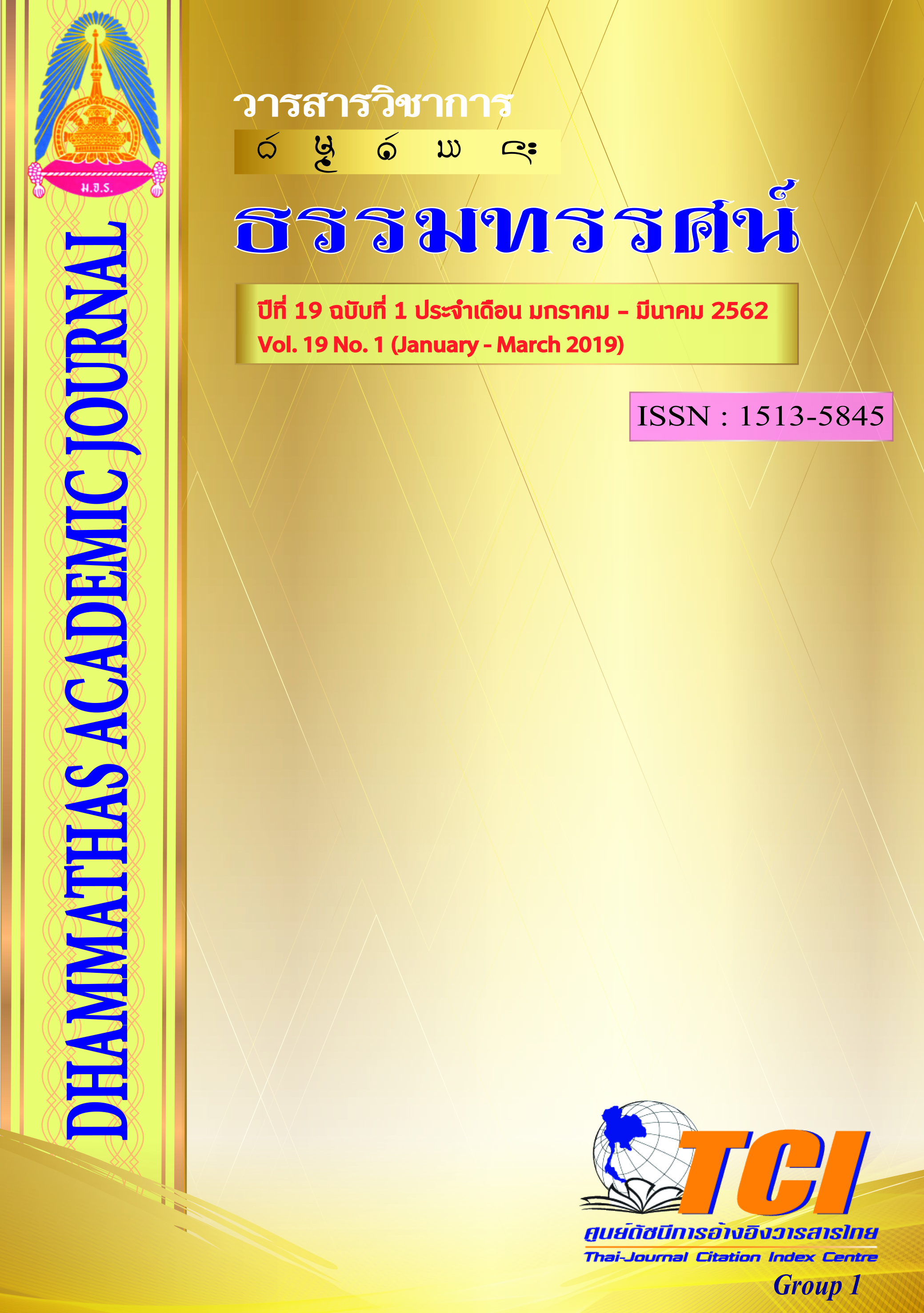A Development of Subject Curriculum on English for Cultural Tourism Based on Place-Based Education with Task-Based Learning for the Students of Mahachulalongkornrajavidyalaya University Nakhon Phanom Buddhist College
Main Article Content
Abstract
The purposes of this research were: 1) to develop a subject curriculum of English for Cultural Tourism based on the place-based education and task-based learning at Mahachulalongkornrajavidyalaya university Nakhon Phanom Buddhist College, and 2) to investigate the effect of the implementation of the developed curriculum. The developed curriculum involved three stages: 1) studying necessary background information, 2) construction of the curriculum, and 3) an experiment in using the curriculum. The samples in this study were 16 monk/lay students majoring in English teaching during the academic year 2017 who were willing to take part in the experiment and selected by a simple random sampling method. The research tools included a subject curriculum, Instructional Administrative plans, an English ability test, an English attitude test, awareness of cultural values attitude test, and a questionnaire on satisfaction. The statistics used included percentage, mean, standard deviations, and t-test for dependent samples.
The findings were as follows: 1.The developed subject curriculum consisted of 8 elements: Rationale and significance, basic concepts, principles, objectives, structure and course description, management of learning activities, learning material and resources, and assessment and evaluation. The structure of the subject curriculum was comprised of 6 Units with a total of 45 hours of instruction including: (1)Unit 1–General information about Nakhon Phanom; (2)Unit 2–A day-trip to Nakhon Phanom; (3)Unit 3–Describing Phra That in Nakhon Phanom; (4)Unit 4–Buddhism and Thai ways of life; (5)Unit 5–Cultural and Festivals; and (6)Unit 6-Special interest tour: Sericulture at Na Wa district. The management of learning activities in the subject curriculum involved 4 stages: warm-up, pre-task, task cycle (comprising 3 steps: task, planning, and report), and language analysis (further divided into language analysis and language practice). 2. Regarding the effect of the subject curriculum of English for cultural tourism on the students' English ability, the results revealed that 2.1) the English ability posttest scores of the students were significantly higher than their pretest scores (p<.01); 2.2) their English attitude posttest scores were significantly higher than their pretest scores (p<.01); 2.3) the students were aware of the cultural values as a result of the subject curriculum at a high level (= 4.39, S.D.=0.52); and the students were satisfied with learning with the subject curriculum at a high level (=
4.39, S.D.=.19 ).

